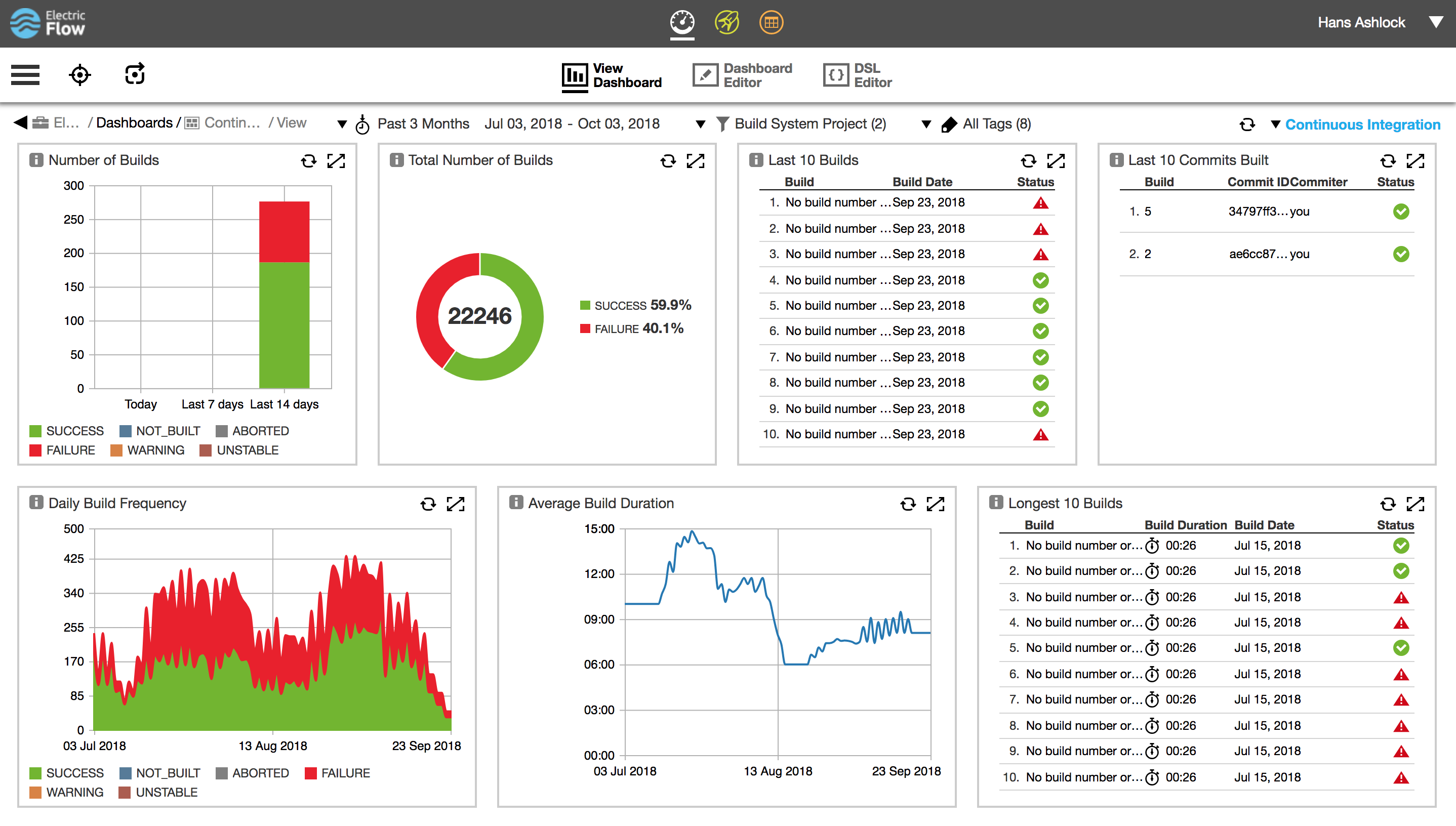Electric Cloud is making available a software-as-a-service (SaaS) pricing option available for its ElectricFlow application release management and continuous delivery (CD) platform.
In addition, version 8.5 of ElectricFlow adds support for a Kanban-style pipeline view, object tagging for custom reporting and improved searchability and a continuous integration (CI) dashboard to track and analyze build processes, failures and successes.
The SaaS option doesn’t fundamentally change the existing Electric Cloud pricing model as much as it does provide a different location to host ElectricFlow, said Electric Cloud CTO Anders Wallgren. Pricing for ElectricFlow is still based on nodes and the number of users rather than consumption.
The CI dashboard, meanwhile, provides organizations that have one or more types of CI platforms being employed with visibility into, for example, Jenkins, Git and Bamboo pipelines using a single dashboard. Many organizations today have multiple CI pipelines in place largely because of the preferences of individual developer teams, Wallgren noted.
The Kanban-style pipeline also provides a mechanism for managing multiple application development projects based on a just-in-time process originally developed by Toyota that is employed to identify bottlenecks in car manufacturing. That same issue, of course, applies to software development, where the number of dependencies between various modules is increased exponentially. That issue is becoming even more pronounced as organizations move to build and deploy cloud-native applications based on various types of runtimes. DevOps teams now can approve and observe release progress and deployment status within ElectricFlow in near real time, Wallgren said.
Finally, tagging functionality on all objects allows release managers and product owners to create more granular, real-world reports quickly and easily. Universal data segmentation replaces code-based report creation and can be applied across any object type.
Wallgren noted that adoption of DevOps best practices generally continues to advance at uneven rates. Electric Cloud is now working closely with the DevOps Institute on an online training and certification program dubbed Electric Cloud University. The goal is to increase the number of IT teams that are exposed to modern CD processes at whatever pace they choose. Electric Cloud is making four certifications available: Build Accelerator, Test Accelerator, Administrator and Agile Master.
Wallgren said the next major frontier when it comes to continuous delivery will be applying deep- and machine-learning algorithms to tame what has become an exceedingly complex management challenge. DevOps toolchains continuously create vast amounts of data originating from numerous tools, and machine learning algorithms can harness that data to automate a range of DevOps processes in a way that is not only makes those processes more accessible, but also easier to demonstrate how an application release meets a specific compliance mandate. To achieve that goal, Electric Cloud has been embedding more algorithms into every release cycle of ElectricFlow, says Wallgren.
It may take a while longer for algorithms to minimize all the complexity associated with continuous delivery today. But as DevOps continues to evolve, it’s apparent that many of the manual tasks that have often conspired to limit adoption of DevOps will one day soon disappear.